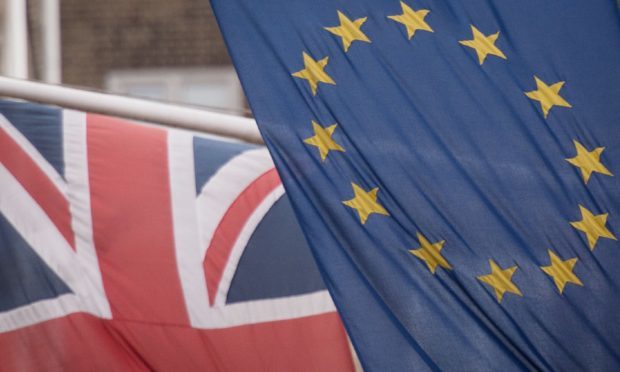The full impact of a hard Brexit on Dundee’s economy has been detailed in a council report.
Dundee City Council has prepared its impact report recommending the formation of a Brexit advisory team, which would enable the local authority to develop strategies aimed at negating the affects the UK’s leaving the EU will have.
Councillors will meet this coming Monday to discuss the findings of the investigation, as well as being asked to approve the formation of the council’s advisory team.
The first immediate impact of Brexit for the city was experienced in November last year, after it was decided Dundee could not compete for the title of European Capital of Culture 2023.
This decision cost Dundee the chance to host a European-wide event, which could have generated more than £40 million for the local economy.
The council utilised economic forecasts from the Fraser of Allander institute in Glasgow, who detailed a number of scenarios for the post-Brexit economy.
It is widely believed the UK government will seek one of three post-Brexit models –the Norway model, where UK keeps access to the European Economic Area (EEA), a Switzerland model, where UK is a member of the European Free Trade Association (EFTA) but not the EEA and the final World Trade Organisation scenario, where UK has to operate WTO rules.
According to the institute, any of the three options will have negative consequences on Dundee and Scotland’s economy.
The largest reductions to the city’s workforce will be felt in the wholesale, retail, transport and food industries.
Retail, wholesale and repairs – Dundee’s largest business sector – would be worse hit, with 12,150 residents employed in these trades across 825 businesses. Across Scotland, 25,000 jobs in these sectors are forecast to be lost in the first decade after the UK leaves the EU.
Dundee’s “disproportionately large” public sector – which accounts for 30% of the total jobs in the city – would be greatly affected by the Brexit-induced economic slowdown, potentially leading to job losses and a knock-on effect for the rest of the local economy.
The sheer size of the city’s public sector – more than 22,000 employees – means even the slightest percentage change in expenditure on public services will have a massive effect.
If jobs in the public sector are reduced in Dundee, as predicted, then the knock-on effect for the economy would be widely felt.
Brexit negotiations, as they are, still swing on three priority areas – citizens’ rights, the Irish Border and the financial “divorce” settlement.
The issue of free movement of EU citizens will have an impact on the city, according to the report, because of the potential loss of overseas visitors.
It is recognised the V&A, which opens in September, will be not just a local but international attraction.
According to the council’s report, it is “essential” for the projects long term success the ease of movement to the UK for EU visitors is not impaired.
Tourism in the city currently injects around £12 million into the local economy, but this figure is hoped to rocket once the world-renowned museum of design opens its doors.
As well as the risk to visitors having easy access to Dundee attractions, the report states the city and the UK as a whole might become entirely “unattractive” to European visitors because of its decision to leave.
Further to this, the council reports, is the impact a lack of free movement could have on both city universities.
Fraser of Allander’s recent study showed Dundee University supports more than £740 million in turnover for Scottish businesses.
More than 350 staff (academic and research only) and more than 1,000 students attending the institution come from EU countries.
EU students alone are responsible for spending around £5 million in the local economy.
As well as students, more than £65 million of funding for Dundee University was handed over from the EU over a six year period.
The impact report notes the loss of EU funding for life sciences in particular – which employs 800 people privately in Dundee, not including the thousands those paid by the university and Wellcome Trust institute – poses a large threat.





